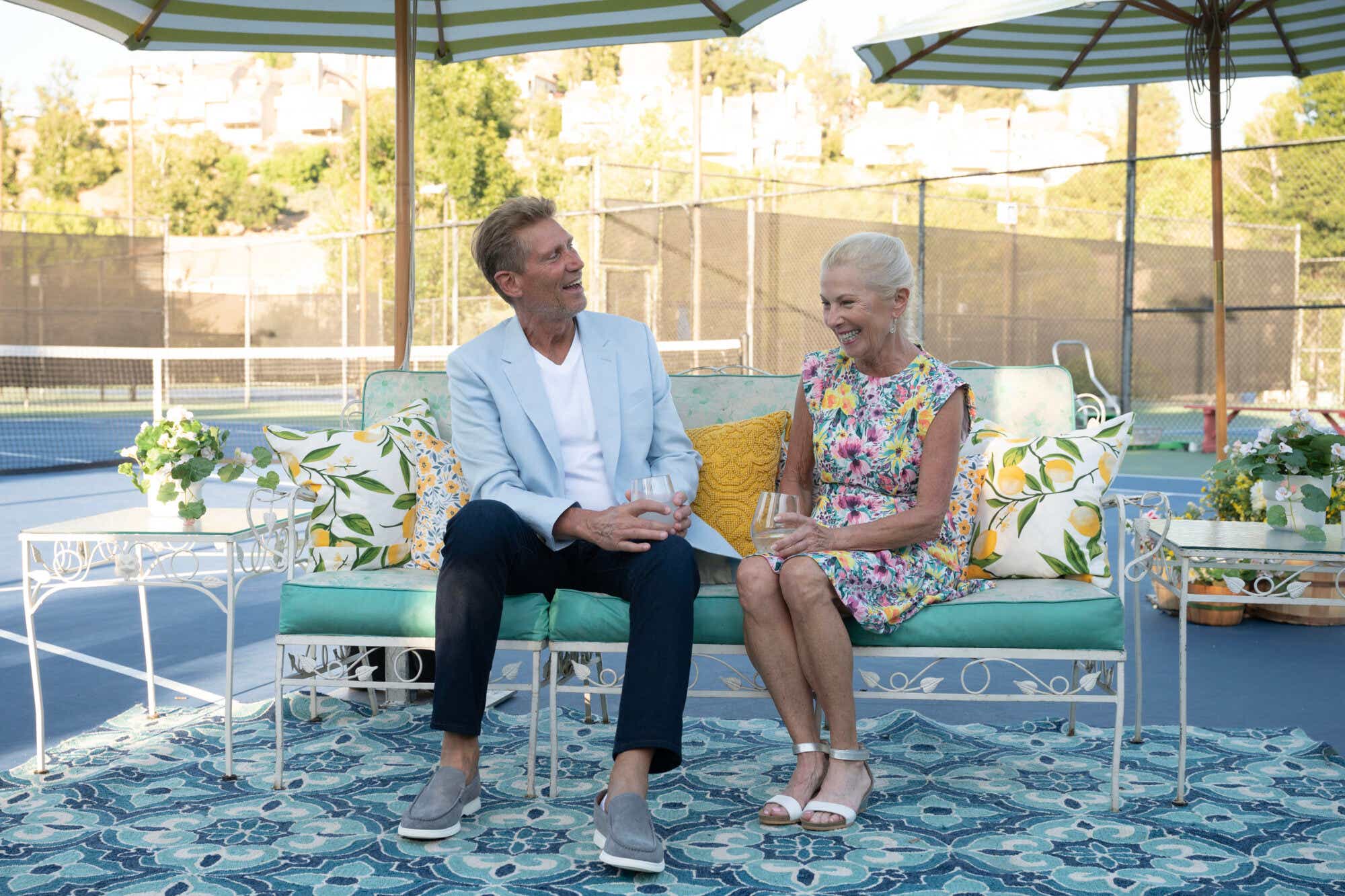The Golden Bachelor has emerged as the unlikely hero to save The Bachelor franchise. It’s been watched by fans of all ages, and its finale hit a nearly two-year high in ratings. ABC merely dipped its toe into showcasing an older demographic — the first season contained only eight episodes compared to the usual 10, and it aired a full three years after the initial casting call was put out — but it’s clear the network has struck gold (pun intended). Beyond a potential Golden Bachelorette, will the show’s success have an impact on our screens?
Before Gerry Turner set foot inside Bachelor mansion, The Bachelor was in a steady decline for years. Its most recent season premiere was watched by an average of 2.9 million viewers — down from season 26’s 3.5 million viewers and season 25’s 5 million viewers. The franchise was mired in scandal after scandal, bogged down by lackluster leads, and undermined by aspiring influencers.
But then Turner arrived in the signature limo with his piercing blue eyes and humble demeanor and ratings shot up: 4.6 million people watched it live, but even more tuned in later. The premiere reached 11.68 million people in delayed multi-platform streaming, the largest such audience for any of The Bachelor iterations in over three years, and it set a record as ABC’s most-watched episode of any unscripted series on Hulu after 35 days of viewing.
Even though it showcases older adults, younger audiences ate it up. PJ Pereira, bestselling author and co-founder of Pereira-O’Dell advertising agency, tells Katie Couric Media, “Historically, the sweet spot for engagement swings between the ages of 18 and 49.” He explains, “It's the demographic dance floor where cultural movers and shakers make their moves.“ Even the way ratings are reported focuses in on this core age group. He urges us not to “forget that disruptive brilliance can come from unexpected places.”
While the show has always been well-received among older viewers — before Turner’s season 43 percent of The Bachelor viewers were above 55 and the median age of ABC viewers is 64 — this pivot undeniably attracted an even larger golden audience, helping the series reach new viewers. An ABC spokesperson tells Katie Couric Media that The Golden Bachelor averaged a 3.83 rating among adults 50 and up this season — outperforming ratings from the same demographic for the most recent seasons of The Bachelor and The Bachelorette. This is significant because it successfully captured an older, often overlooked audience, and now proves to be lucrative for both TV networks and advertisers.

It was such a boon that it seems there are already copycats in the works: A day before the finale aired, Variety reported that an unscripted Sex and the City dating show was in development. It’ll feature four friends in their 50s in a setup that doesn’t sound that unlike a Bachelor spin-off: “They’ll live together in a cozy country chateau where they’ll have their pick of a different group of men in each episode,” Variety reports. Candace Bushnell, who’s partnering with production company Bunham-Murray on the show, told Variety, “50-something women (and above) are the hottest new dating demographic, and I should know, I am one of them.”
Money will likely follow. “We'd be remiss to overlook the powerhouse that is the Baby Boomer generation,” says Pereira. “They've got the wisdom, the experience, and the spending power — a trifecta that should never be underestimated in the world of advertising strategy.” Data from Porch Group Media puts Baby Boomers’ combined spending power at $548.1 billion annually — the highest of any generation. "Any brands that got in early were lucky. The secret is now out," Pereira says.
Pereira thinks advertisers are paying attention, and that any future seasons or similar shows could attract higher ad revenue, as advertisers would now see the opportunity to reach a large and engaged audience. He explains, "Buying ads during The Golden Bachelor will become more expensive as viewership increases, so any brands looking to target consumers aged 50+ would be smart to get in sooner rather than later."

But the real value may go further than the raw numbers. The show has earned praise for giving visibility to an underrepresented group and their search for love. Erin Weir, EVP of marketing for ABC and Disney Entertainment Television, said, “There is a warmth and relatability to this show that is resonating with viewers.”
“Ultimately, advertisers will always follow culture, because they know there is momentum, volume of people, and a particular trait or interest they can try to address,” Pereira says. He adds the show’s success “signals a growing appetite for narratives that celebrate experience over expiration dates,” so we “will likely” see more of them.
With fans clamoring for a Golden Bachelorette and already beginning to plan Goldens in Paradise, it seems like it’s a matter of if, not when, we get more of these types of stories. The bigger question may be how to keep viewers engaged so the charm doesn't wear off.









